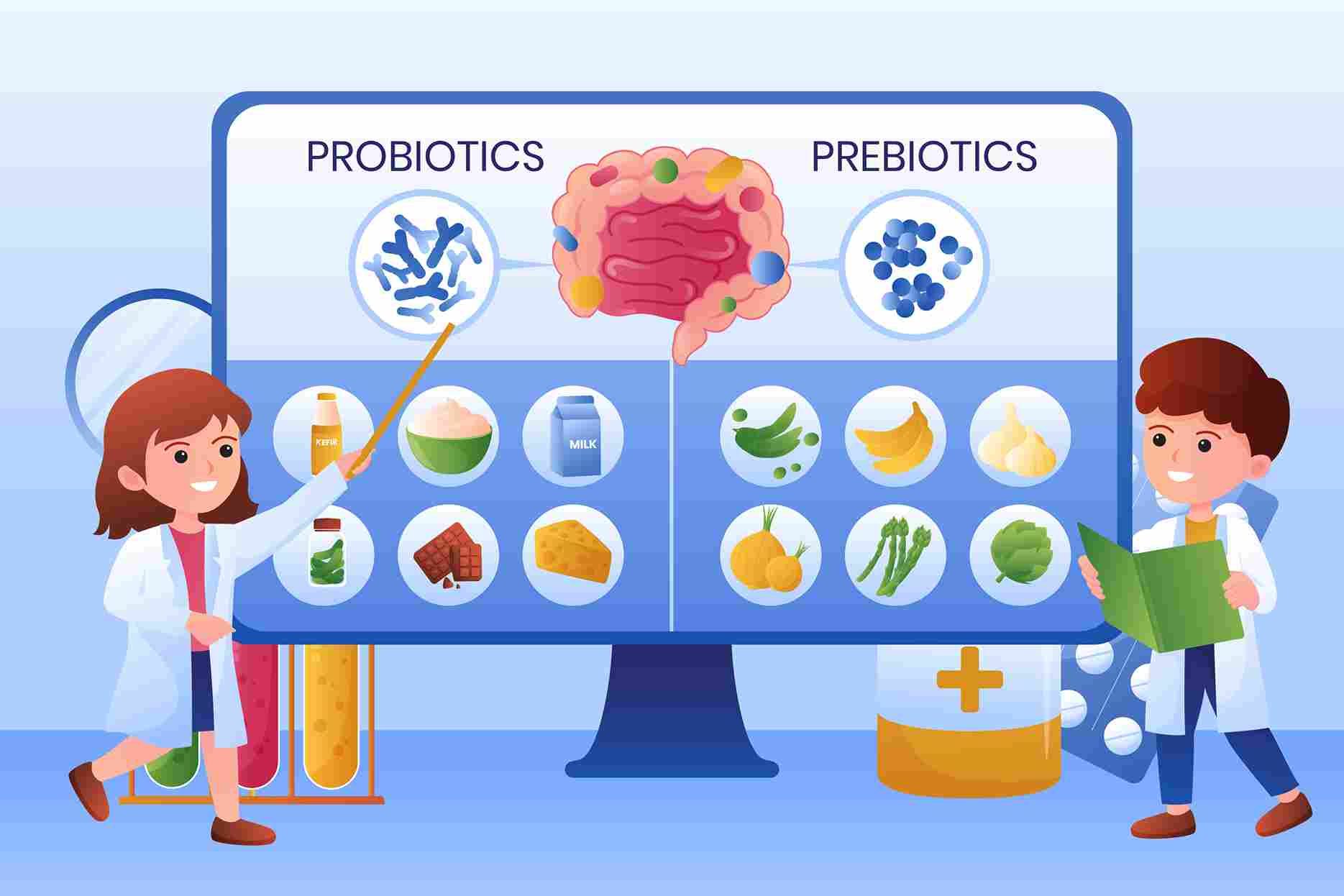Probiotics vs. Prebiotics: What's the Difference and Do You Need Both?
Did you know our gut is often called our “second brain”? It is because it contains 100 million nerve cells and communicates with our brain directly through the vagus nerve. And pro and prebiotics play an important role in maintaining that connection.
But what are these and the difference between probiotics vs prebiotics? In this blog we will understand the differences between probiotics and prebiotics, how they work together, and why your body needs both.
Probiotics are live microorganisms such as bacteria and some yeasts. These provide several health benefits when taken in adequate quantities. They exist in our body naturally, especially in our gut. However, sometimes we need to boost them via our food or supplements. Here are a few functions that probiotics perform in our body.
Now let’s talk about prebiotics. These are usually misunderstood but are equally important. Prebiotics are a type of non-digestible food present in some plant-based foods that our body can not break down. However, our gut bacteria can. These prebiotics are like fertilizer or fuel that helps good bacteria to grow and flourish.
Prebiotics are important for creating a hospitable environment in our gut that helps existing probiotics thrive and perform better.
Without prebiotics, probiotics may not survive long enough to make a real difference.

Let’s break down the difference between prebiotics and probiotics in a simple chart:
| Live good bacteria | Non-digestible plant fibers | |
|---|---|---|
| Add beneficial microbes to your gut | Feed existing beneficial microbes | |
| Fermented foods and supplements | Plant-based foods, especially fibrous ones | |
| Yogurt, kefir, and kimchi | Garlic, bananas, oats, onions |
So, when people ask “probiotic vs prebiotic, what’s better?”The real answer is: You need both.
Adding both pro and probiotics in your daily diet creates a synergistic relationship that helps your gut ecosystem thrive. While probiotics bring the bacteria in, prebiotics keep them alive and well.
Here’s what happens when they work together:
This powerful duo is sometimes referred to as synbiotics, especially when combined in supplements.
You might be wondering: Are prebiotics really that important? Absolutely. In fact, without them, your probiotics may not be as effective. Here are some well-researched prebiotics benefits:
For many people, a diet rich in fruits, vegetables, and fermented foods is enough. But if you’re experiencing digestive issues, chronic stress, or have taken antibiotics recently, a supplement might help.
Look for:
Want to improve your gut health starting today? Here’s a simple plan:
Evening:
- Sip on a small glass of kombucha
- Eat whole grains and veggies high in prebiotic fibers/probiotic supplements.
To sum it up: There’s no competition between probiotics vs prebiotics, your body needs both.
Understanding the differences between probiotics and prebiotics helps you make better food choices and create a gut-friendly routine that supports digestion, immunity, and mental clarity.
Add more prebiotic-rich foods to your meals. Pair them with natural probiotic sources. And if needed, consider Vitauthority probiotic supplements.
Your gut will thank you.









